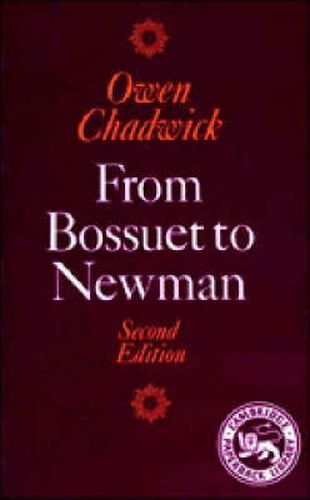Readings Newsletter
Become a Readings Member to make your shopping experience even easier.
Sign in or sign up for free!
You’re not far away from qualifying for FREE standard shipping within Australia
You’ve qualified for FREE standard shipping within Australia
The cart is loading…






The coming of modern historical research had religious consequences, especially in the more traditional churches to which history was very important and which themselves helped to create the historical sense. In this classic work, long unobtainable but now revised with a new introduction, Owen Chadwick traces the development of the notion that change in Christian doctrine was both possible and legitimate. Bossuet in the seventeenth century represented the opinion that Christian doctrine never or hardly changed: Newman in the second half of the nineteenth century saw that its expression necessarily changed in a changing society. This book shows how one opinion changed into the other, and explains the difficulties and tensions behind Newman’s attempt to persuade an inherently conservative institution to face reality. In so doing it thus illuminates one vital aspect of the arrival into European thought of a distinct historical sensibility.
$9.00 standard shipping within Australia
FREE standard shipping within Australia for orders over $100.00
Express & International shipping calculated at checkout
The coming of modern historical research had religious consequences, especially in the more traditional churches to which history was very important and which themselves helped to create the historical sense. In this classic work, long unobtainable but now revised with a new introduction, Owen Chadwick traces the development of the notion that change in Christian doctrine was both possible and legitimate. Bossuet in the seventeenth century represented the opinion that Christian doctrine never or hardly changed: Newman in the second half of the nineteenth century saw that its expression necessarily changed in a changing society. This book shows how one opinion changed into the other, and explains the difficulties and tensions behind Newman’s attempt to persuade an inherently conservative institution to face reality. In so doing it thus illuminates one vital aspect of the arrival into European thought of a distinct historical sensibility.